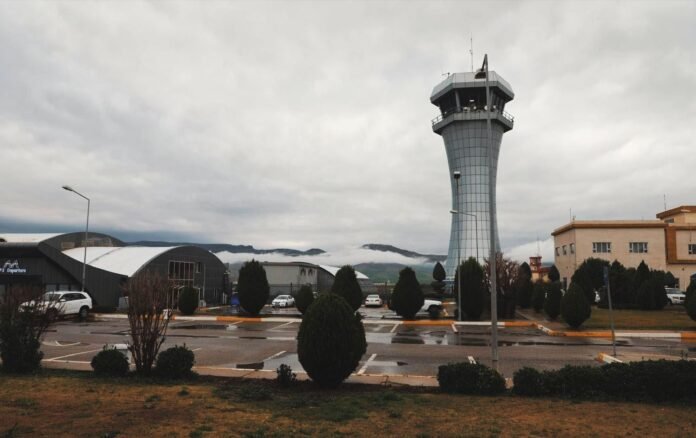Turkey has once again extended its airspace ban on flights from Sulaimani International Airport. The restriction, now in place for the fifth time, highlights deepening tensions between Ankara and authorities in Iraq’s Kurdistan Region. Officials confirmed that the Sulaimani flight ban from Turkey will continue until October.
The Turkish Directorate General of Civil Aviation announced the decision without prior notice to airport officials in Sulaimani. Dana Mohammed, the airport’s communications director, stated that no formal notification had been received about the latest extension. However, flights through Turkish airspace remain blocked for all routes originating from Sulaimani.
The original ban began after Turkish officials accused Sulaimani of hosting activities linked to the Kurdistan Workers’ Party (PKK). Ankara pointed to the 2023 helicopter crash involving Syrian Democratic Forces (SDF) fighters as evidence. Those helicopters were reportedly traveling to Sulaimani, raising concerns for Turkish officials. They claim that SDF fighters maintain ties with the PKK, which Turkey classifies as a terrorist organization.
Since then, Turkish authorities have kept the Sulaimani flight ban from Turkey in place, citing continuing PKK activity in the area. Despite efforts by Kurdistan Region leaders to resolve the issue through dialogue, no breakthrough has occurred.
The Patriotic Union of Kurdistan (PUK), which controls Sulaimani province, faces repeated accusations from Ankara. Turkey has previously taken diplomatic steps against the PUK, including expelling its representative and limiting official visits. These moves came after a 2017 incident when the PKK captured two Turkish intelligence agents in Sulaimani.
Relations between the PUK and Turkey remain strained. PUK leader Bafel Talabani acknowledged the difficulty of repairing ties during a regional forum. His brother, Qubad Talabani, has since met several Turkish diplomats in efforts to reopen Turkish airspace. However, Ankara has not reversed its stance.
Meanwhile, the air ban continues to impact passengers and businesses in the region. Flights to Turkey remain unavailable, pushing travelers to reroute through Erbil. This inconvenience fuels local frustration and deepens economic pressure on the province.
The Sulaimani flight ban from Turkey now serves as a reminder of unresolved political and security disputes. It underscores Turkey’s determination to link airspace access with counterterrorism demands.

